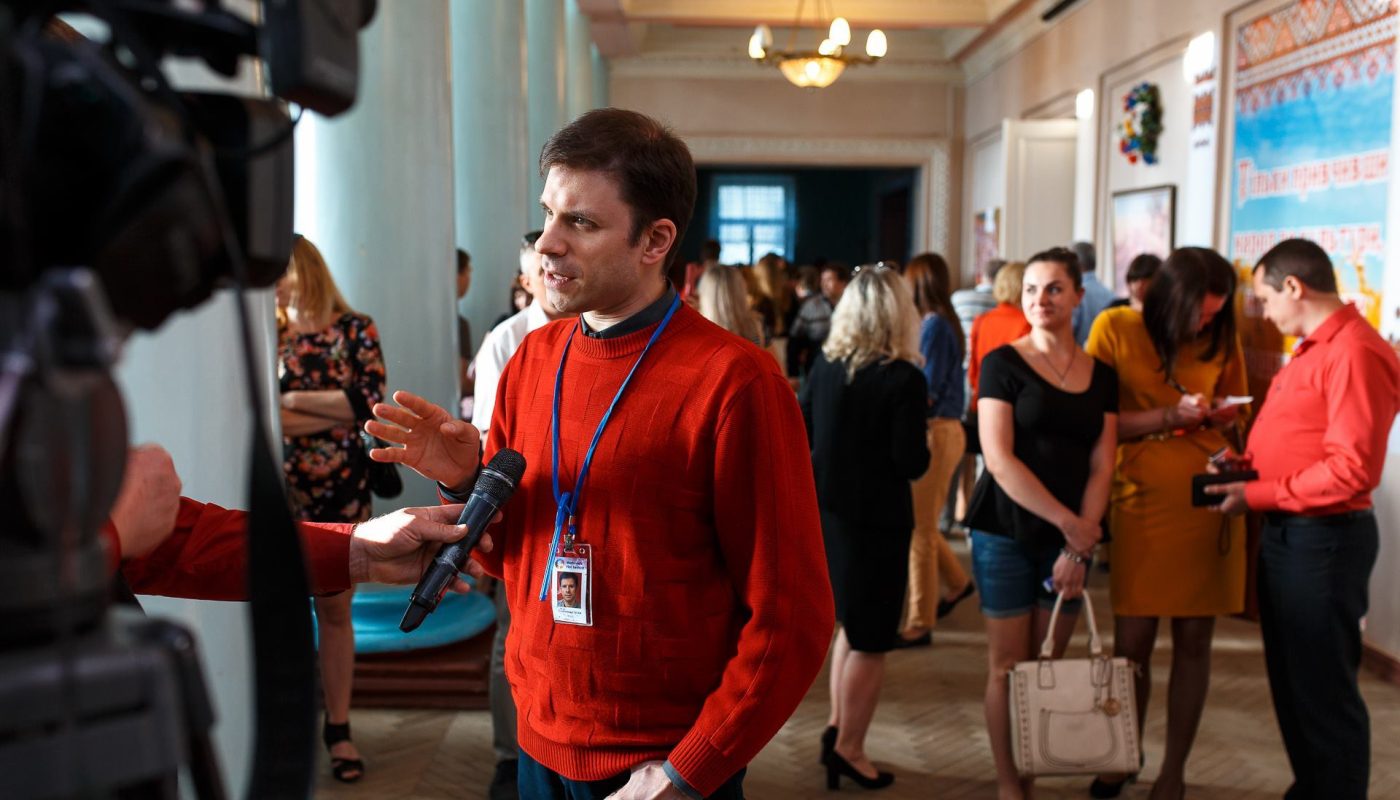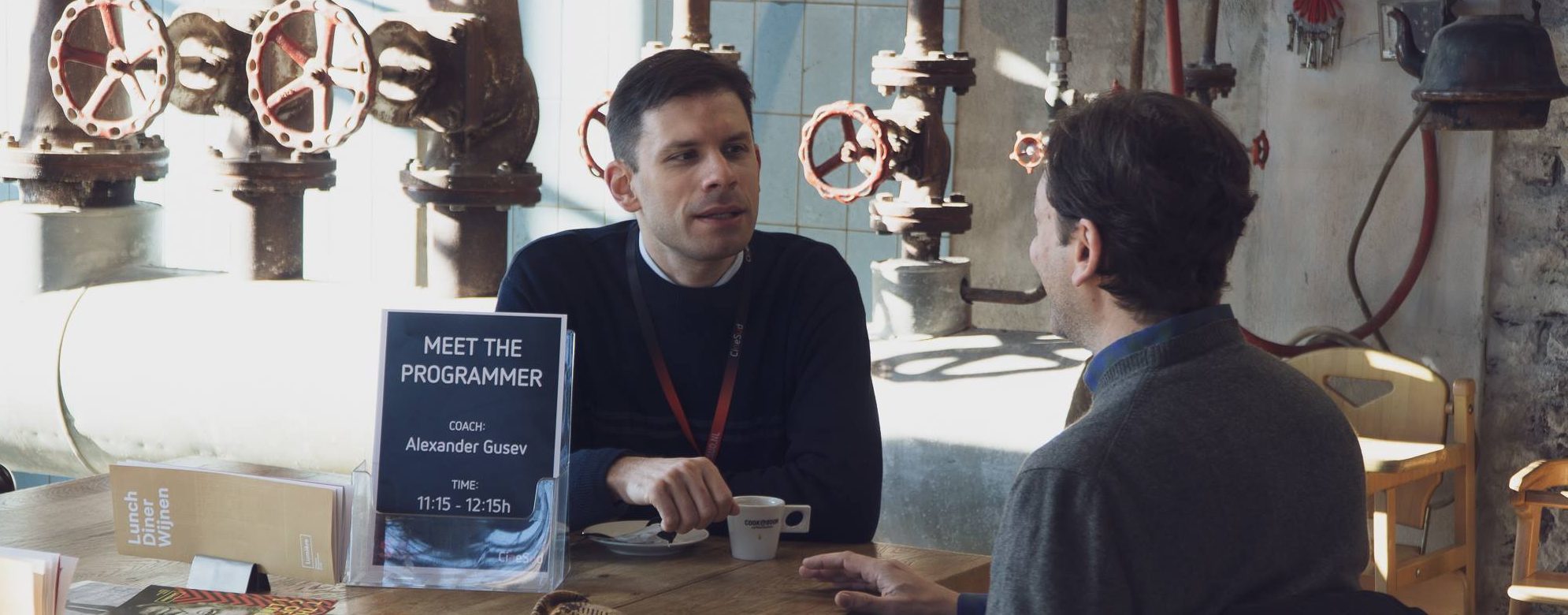

Inside the mind of a festival programmer
Head of programming of SHIFT Film Festival Alexander Gusev tells about the selection process.
Geplaatst op 5 november 2018For this years Euregion Film Festival and SHIFT Film Festival CineSud teamed up with FIPRESCI-critic and often asked jury-member Alexander Gusev for the official selection of the festivals. In a former article Alexander already gave valuable insights in how he as a programmer works. Let’s this time dive into the selection process of SHIFT Film Festival 2018.
“It seems to me that perception of art is beautiful in its subjectivity.”
On the motto Shift in Perspectives
“As it seems to us, the presented films, in accordance with the motto of the festival (Shift in Perspectives, red.), fixing the changes that taking place in our world and our attitude to these changes. At the same time, perhaps the most significant transformations occur in rethinking the place that various minorities occupy in our civilization. Devoting their pictures to the problems of various vulnerable groups, immigrants, the LGBT-community, people with mental disorders and so on, filmmakers show that attitude to minorities indicates the level of civilization of society and means respect for everyone’s rights, because, after all, each of us with his specific ideas and inclinations is differs from other people.”
On how he choose the program
“The perception of art is beautiful in its subjectivity. Just as the truly significant works are marked by the creative originality of their author, same way the festivals get a unique character by the taste of their selectors. Therefore, I was not afraid to focus on my own ideas about the ‘beautiful’ and the ‘significant’, while coordinating my choice with the organizers. This is remarkable of cinema which always remains a team game, whether it is a question of making movies, showing them or watching them. That is my personal tastes seemed to be tested by someone else’s opinion, which did not allow me to completely break away from reality. Considering festival motto, I also tried to highlight works that have a certain social significance, as well as different creative search.”
General overview of the selection of SHIFT 2018
“The films of the first day of the festival, I think, are mostly concentrated on the inner world of the heroes, on the difficult quest for contact with the outside world. Aloneness by Michael Schmidl tells about being of a lonely person, the life of the people who are going through an existential experience that is comparable to the experience of Robinson Crusoe in the heart of the modern metropolis. JANE DOG by Koen Blauwblomme shows the disintegration of consciousness under the influence of mental traumas, which can only be kept from the help of a loved one. The genre clarity of the thriller Genektby Larry Erens is designed to help the viewer gain ground in this screen space of unsteady images. The Silence of Cicale by Veronika Schoberer brings us back to the world of intimate experiences, conveys a feeling of fear before the start of relationships – and thirst for them. Also, Pale Blue Me by Theresa Haas and Maurice Miller reveals an extremely personal experience of self-identification, gaining a sense of self-worth, searching for one’s place in the world.”
“The films that we show on Saturday are mostly devoted to the relationship between personality and society. For example, Digital Trauma by Maria Molina is about the cultural shock that each of us has to face when confronted with information about sociopolitical cataclysms in distant corners of the planet. ExO by Hiroki Yokoyama is dedicated to the means possible in the modern world in order to separate unwanted elements from respectable citizens. Unspoken by Samia Badih is an excursion to the emancipation of women in the Arab world. Who am I? by Rose Hanawi is dedicated to the question of the relationship between our ethnic, cultural roots, our religious beliefs and citizenship. Fucking cola by Sophie van de Pol demonstrates the ability of the unconditional love that binds relatives to overcome complexes and prejudices. Ready for a Baby by Anastasia Dyakova talks about how our perception of the most intimate problems is distorted under the influence of perceptions of others.”
“In the special Made in Limburg program, memories of historical traumas coexist with universal themes of being. Voor Galg en Rad by Paul Haans & Jeroen Wielheesen is the story of the 18th century, indicating that in every age the struggle for their rights is a struggle for survival. Bronsttijd by Thomas Paschenegger is a story about how the conflict of generations can benefit all parties to the confrontation. Tot inkeer by Vincent Konings in the scenery of the Middle Ages tells of desperate attempts to come to terms with the care of loved ones. Belofte by Guido Coppis also tells about the inevitability of parting, but in a more intimate manner.”
“If I had to highlight one film, perhaps it would be Digital Trauma by Maria Molina. For me it’s one of the most extraordinary and at the same time convincing realizations describing the impact of information about other people’s tragedies in the digital age. It’s about Bosnia, but the topic is universal.”

How to get from over 400 submissions to a strong selection?
“The average level of the submitted works is quite strong, which, of course, made the task very complicated. I hope this does not sound too blasphemous, but sometimes it seemed that I was in a situation of a kind of “Sophie’s Choice” when I realized that it was necessary to choose one of the two truly worthy works. But you can’t do anything with this, you just have to mentally wish the authors success in other festival venues.”
How do film festivals differ?
“This year I was programmer for as well Euregion Film Festival as for SHIFT Film Festival. It seemed to me that the programs of these festivals reflected somewhat different states of our civilization, or perhaps the mood of our contemporaries. If the films of the Euregion Film Festival were mostly full of anxiety, feelings of insecurity, unsteadiness usual everyday life, the films of SHIFT Film Festival, on the contrary, welcome the changes that are committed. When making a program every festival has its own core.”
On new filmmakers and new techniques
“Young filmmakers are actively exploring the technical innovations that are so quickly changing our everyday life, first of all, the virtual reality of social networks, which has already become an indissoluble part of our work and personal life. At the same time, it seems to me that in the movies of beginning directors, even more so than in previous eras, the creative search is combined with the expression of citizenship, the struggle for a better tomorrow”
“I think the VR-format yet taking its first steps, passes, in some way, the same path, which runs the cinema as a whole, turning from the attraction to the art. Cases where the form allows here to better disclose the content, it seems to me, are still very rare, so it is difficult for me to talk about significant differences between what we saw during Euregion Film Festival and SHIFT Film Festival.”
“In our VR-program we wanted to show the possibilities of this format for various genres of narrative. The Train Hamasen by Kuan Yuan Lai creates a poetic, phantasmagoric image of utopia, a space of tolerance and mutual respect, which, together with the train in which the action takes place, pervades with a sweet dream the familiarity of our time. Perkons: A VR Rockumentary by Cory McLeod clearly with its original mix of animation and documentary material becomes an entertaining guide in the little-known story of the Soviet underground rock movement. This is Progress by Peter Collis and Jessica Driscoll reveals the potential of sports documentary, expanding the space of the arena of competitions and including elements of television reports in cinema aesthetics.”
Programming for an audience
“I like the statement by Umberto Eco that the perfect reader of James Joyce’s Ulysses ultimately receives the same pleasure as the ideal reader of pulp fiction. We are talking about some kind of conformity of the genre, theme, aesthetic attributes of the work and tastes, expectations, and experience of the audience. I once had to see a film that was given a standing ovation in one city, in another cinema, they were booed. It seems to me that there are no universal rules here, but one can expect that the festival, with perseverance and proper taste of those who make it, will be able to create a peculiar atmosphere and shape its audience. And, of course, this is the reverse process, the audience reaction also forms the festival.”
“A variety of selections like the Future Shorts or the Manhattan Short Film Festival have demonstrated that short films can be popular with quite a wide audience. And yet, it seems to me that ordinary viewers prefer the opportunity to experience one and a half to two hours one story, instead of every quarter of an hour adapting to a change in rhythm, genre, style. Although for many it is these roller-coasters that increase interest in watching.”